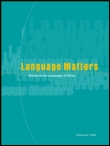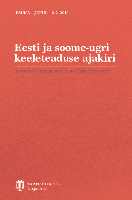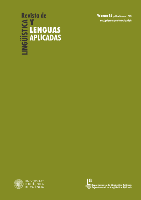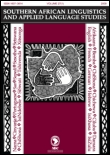
Revista de Llengua i Dret-Journal of Language and Law
Scope & Guideline
Illuminating the Dynamic Relationship Between Language and Justice
Introduction
Aims and Scopes
- Language Rights and Policies:
The journal emphasizes the analysis of language rights, particularly for minority languages in Spain and Europe. It examines legal frameworks and policies that govern the use and promotion of these languages in public life. - Sociolinguistic Research:
A core area of focus is sociolinguistics, exploring how language interacts with social factors such as identity, mobility, and inequality within minority communities. - Legal Linguistics:
The journal contributes to the field of legal linguistics, analyzing legal texts, judicial decisions, and their implications for language use in legal contexts, including interpretation and translation. - Language Education:
Research on language education, particularly in minority languages, is a significant aspect. The journal investigates pedagogical practices, challenges, and policies affecting language learning and teaching. - Legislative Analysis:
The journal publishes detailed legislative reports and analyses that track changes in language-related laws and policies across various regions, providing insights into the evolving landscape of language rights. - Technological Impact on Language:
The exploration of how technology, including translation tools and digital resources, influences language use and rights in administrative and legal settings is also a notable focus.
Trending and Emerging
- Language and Mobility:
Recent publications increasingly address the challenges of language sustainability in the context of migration and mobility, highlighting the need for inclusive language policies that consider diverse linguistic backgrounds. - Multilingual Citizenship:
There is a growing focus on multilingual citizenship, emphasizing the role of language in fostering social cohesion and integration within diverse communities, particularly in Catalonia and other multilingual regions. - Impact of Technology on Language Rights:
The influence of technology on language rights, particularly in legal contexts, is gaining attention. This includes studies on machine translation, digital communication, and their implications for access to justice. - Intersection of Language and Gender:
Emerging research is increasingly exploring the intersection of language, law, and gender, particularly in the context of language rights for women and marginalized groups within legal frameworks. - Critical Analysis of Language Policy:
A trend towards critical evaluations of existing language policies and their socio-political implications is evident, with scholars advocating for reforms that better address the needs of minority language speakers.
Declining or Waning
- Historical Linguistic Studies:
There has been a noticeable decrease in the publication of papers focused on historical linguistics and the evolution of language policies over time, suggesting a shift towards contemporary issues. - General Linguistic Theory:
Research that broadly addresses linguistic theories without a direct connection to legal contexts or specific language rights issues seems to be less prevalent, indicating a narrowing of focus. - Non-Specific Language Comparisons:
Comparative studies that do not specifically address legal implications or do not focus on minority languages are appearing less frequently, possibly due to a heightened interest in more applied research. - Cultural Linguistics:
The exploration of cultural dimensions of language, unless directly tied to legal frameworks or policy discussions, has seen a decline, reflecting a trend towards more practical applications of language research.
Similar Journals

Language Matters
Unveiling the Power of Language DynamicsLanguage Matters is a prestigious journal dedicated to the dynamic field of Linguistics and Language, published by Routledge Journals, Taylor & Francis Ltd in the United Kingdom. With an ISSN of 1022-8195 and an E-ISSN of 1753-5395, this journal serves as an essential platform for scholars seeking to explore the multifaceted relationships between language and society. Recognized in the 2023 Category Quartiles as Q2 in Linguistics and Language, it boasts impressive Scopus rankings, sitting at #298 out of 1088 in the Arts and Humanities category and #356 out of 1167 in Social Sciences, highlighting its significant impact on the field with a 72nd and 69th percentile ranking, respectively. The journal's scope encompasses a wide range of topics including language acquisition, sociolinguistics, and psycholinguistics, making it a vital resource for researchers, educators, and students alike. By not offering open access, it maintains a curated selection of high-quality peer-reviewed articles, ensuring that academic rigor and relevance are upheld for its readership. With a publication range spanning from 1993 to 2024, Language Matters continues to shape conversations and advance knowledge in the ever-evolving landscape of linguistic research.

Eesti ja Soome-Ugri Keeleteaduse Ajakiri-Journal of Estonian and Finno-Ugric Linguistics
Exploring the Richness of Estonian Language StudiesEesti ja Soome-Ugri Keeleteaduse Ajakiri - Journal of Estonian and Finno-Ugric Linguistics is a premier academic journal published by UNIV TARTU PRESS, dedicated to advancing the field of linguistics with a particular focus on the Estonian and Finno-Ugric languages. Since its inception, the journal has embraced an Open Access publishing model, allowing researchers and enthusiasts to freely explore its groundbreaking studies and findings since 2013. With an Impact Factor that places it in the Q3 quartile of leading journals within the linguistic domain, it serves as a vital platform for the dissemination of new research and theoretical advancements. Ranked 410th out of 1088 journals in the Arts and Humanities category for Language and Linguistics, it reflects a robust commitment to quality scholarship that appeals to academics, professionals, and students alike. Operating from Tartu, Estonia, the journal aims to foster greater understanding and appreciation of the Estonian language within the broader context of Finno-Ugric studies, making it an essential resource for anyone interested in these unique linguistic cultures.

ELIA-Estudios de Linguistica Inglesa Aplicada
Innovative Research in English Linguistics: Accessible to AllELIA-Estudios de Linguistica Inglesa Aplicada, published by the University of Sevilla, Faculty of Philology, is an esteemed open-access journal that has been a cornerstone in the field of English Linguistics since its establishment in 2000. With an ISSN of 1576-5059 and an E-ISSN of 2253-8283, ELIA aims to foster scholarly research and discourse by providing a platform for innovative studies in linguistics and applied language studies. As a testament to its academic rigor, the journal has achieved a Q2 ranking in Linguistics and Language for 2023, reflecting its impact and relevance within the academic community. The journal is indexed in Scopus, further solidifying its standing with ranks in both the Arts and Humanities and Social Sciences categories. Researchers, professionals, and students alike will find valuable insights and research findings that contribute to the evolving understanding of English linguistics. The journal is based in Sevilla, Spain, and can be accessed freely online, making it an accessible resource for those engaged in the study of language and linguistics.

Lingua Montenegrina
Pioneering Research in Montenegrin Linguistics and Cultural StudiesLingua Montenegrina is a distinguished academic journal dedicated to exploring and advancing the fields of Montenegrin language and literature. Published by the Institute of Montenegrin Language and Literature, this journal serves as a vital platform for researchers, educators, and students interested in the nuances and development of Montenegrin linguistics, literature, and cultural studies. With an ISSN of 1800-7007, it contributes significantly to the scholarly discourse in the region and beyond. While the journal operates under a traditional subscription model, it ensures that its readership has access to high-quality research that is pivotal for understanding Montenegrin identity and cultural expressions. The commitment of Lingua Montenegrina to rigorous academic standards and its focus on regional studies positions it as an essential resource for those looking to deepen their understanding of the Montenegrin language and its literary heritage.

Treballs de Sociolinguistica Catalana
Innovating Research at the Intersection of Language and SocietyTreballs de Sociolinguistica Catalana is a distinguished open-access journal published by the Institut d'Estudis Catalans, focusing on the critical intersection of sociology and linguistics within the Catalan-speaking regions. With an ISSN of 0211-0784 and an E-ISSN of 2013-9136, this journal has been a vital platform for research since its transition to open access in 2007, facilitating broad dissemination and accessibility of scholarly works. Located in the heart of Barcelona, Spain, the journal aims to foster dialogue and understanding of sociolinguistic phenomena, promoting collaboration among researchers, professionals, and students. By publishing high-quality, peer-reviewed articles that explore language use in social contexts, Treballs de Sociolinguistica Catalana contributes significantly to the study of Catalan language and its sociocultural implications, positioning itself as an essential resource for those invested in the dynamic field of sociolinguistics.

Estudios de Linguistica-Universidad de Alicante-ELUA
Fostering Innovation and Dialogue in Linguistic ResearchEstudios de Linguistica-Universidad de Alicante-ELUA is a distinguished academic journal dedicated to advancing the field of linguistics, published by Universidad de Alicante. With an Open Access model adopted since 2020, ELUA facilitates greater accessibility to pioneering research for scholars and enthusiasts alike. The journal's ISSN is 0212-7636 and its E-ISSN is 2171-6692, ensuring it is indexed and easily discoverable in academic databases. Though the journal's H-Index is currently not specified, its commitment to disseminating high-quality linguistics research positions it as a valuable resource for researchers, professionals, and students. The journal aims to foster scholarly dialogue and innovation in various linguistic domains, making it an essential platform for sharing insights and findings that shape contemporary linguistic studies. Based in Alicante, Spain, ELUA is poised to contribute significantly to the global linguistics landscape.

Languages
Connecting scholars to the heartbeat of language research.Languages, published by MDPI, is a prestigious open-access journal dedicated to the field of Linguistics and Language studies. Since its inception in 2016, this journal has rapidly established itself as a leading platform for high-quality research, achieving an impressive Q1 ranking in 2023 and standing out in both the Arts and Humanities as well as the Social Sciences categories with significant percentile rankings (76th and 74th respectively). Based in Switzerland, Languages fosters an international community of scholars who are committed to exploring the multifaceted dimensions of language, from theoretical frameworks to practical applications. With a robust e-ISSN of 2226-471X, the journal prioritizes accessibility, allowing researchers, professionals, and students to freely engage with cutting-edge research and insights. By bridging the gap between theory and practice, Languages plays a crucial role in advancing our understanding of linguistic phenomena, making it an invaluable resource for anyone invested in the study of language.

Sprache & Sprachen
Engaging Minds in the Dynamic World of LanguageSprache & Sprachen is a renowned academic journal published by the Gesellschaft Sprache & Sprachen Gesus EV, focusing on the dynamic field of linguistics and language studies. With an ISSN of 0934-6813 and an E-ISSN of 2199-6016, this journal serves as a valuable platform for researchers and scholars to share innovative research, theoretical frameworks, and empirical studies related to language usage, structure, and evolution. Though it currently does not operate under an Open Access model, it maintains a robust reputation within the academic community, contributing significantly to ongoing discussions in linguistics. The journal's objective is to foster interdisciplinary collaboration and provide a forum for diverse linguistic perspectives, making it an essential resource for professionals and students alike who are keen on advancing their understanding of language phenomena. Located in Wuppertal, Germany, Sprache & Sprachen aims to engage the global academic audience by disseminating critical insights and encouraging scholarly discourse.

Revista de Linguistica y Lenguas Aplicadas
Innovative Insights for the Linguistic CommunityRevista de Linguistica y Lenguas Aplicadas, an esteemed journal published by UNIV POLITECNICA VALENCIA, EDITORIAL UPV, is a pivotal resource in the field of linguistics and applied languages. Since its inception, the journal has embraced Open Access publishing since 2006, ensuring that its rich repository of research is readily available to a global audience of researchers, academics, and language professionals. Headquartered in Valencia, Spain, the journal contributes significantly to the advancement of linguistics knowledge, boasting a respectable ranking within the Q3 quartile for Linguistics and Language (2023) according to Scopus metrics. It covers a diverse range of topics and methodologies, engaging readers through its commitment to scholarly rigor and innovation. The journal is uniquely positioned to inform and inspire essential discussions from 2015 to 2024, making it a vital platform for emerging linguists and seasoned scholars alike, as they explore the evolving landscapes of language and communication.

Southern African Linguistics and Applied Language Studies
Exploring the Rich Tapestry of Southern African LanguagesSouthern African Linguistics and Applied Language Studies is a prestigious journal dedicated to the exploration and analysis of linguistics and applied language studies within the Southern African context. Published by Taylor & Francis Ltd, this esteemed journal has established itself as a significant platform for scholars and practitioners since its inception in 2003. With an impressive Q2 ranking in the Linguistics and Language category and a current Scopus rank of #430 out of 1167, it occupies a vital position in the academic landscape, appealing to a diverse readership keen on linguistic research, language policy, and applied linguistics. While the journal is not currently open access, it provides comprehensive insights and scholarly articles that foster understanding and innovation in linguistic practices and language education. As of 2024, the journal continues to deepen its impact through rigorous peer-review and a commitment to advancing knowledge, making it a key resource for researchers, educators, and students seeking to navigate the complexities of language within the Southern African region and beyond.